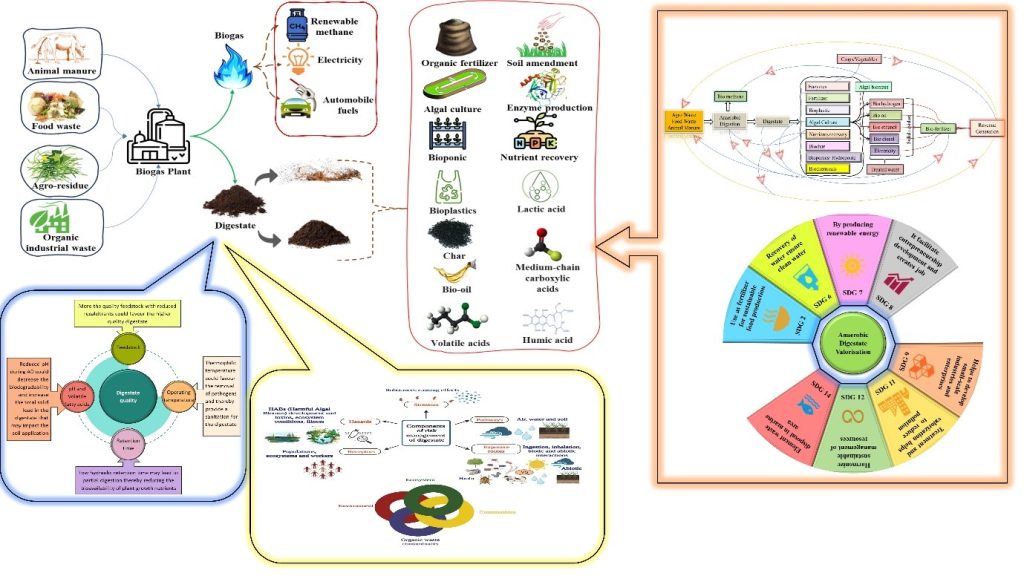Current Happenings ENVS News
- A Sustainable Method for Recovery of Valuable Metals from LIBs June 26, 2025
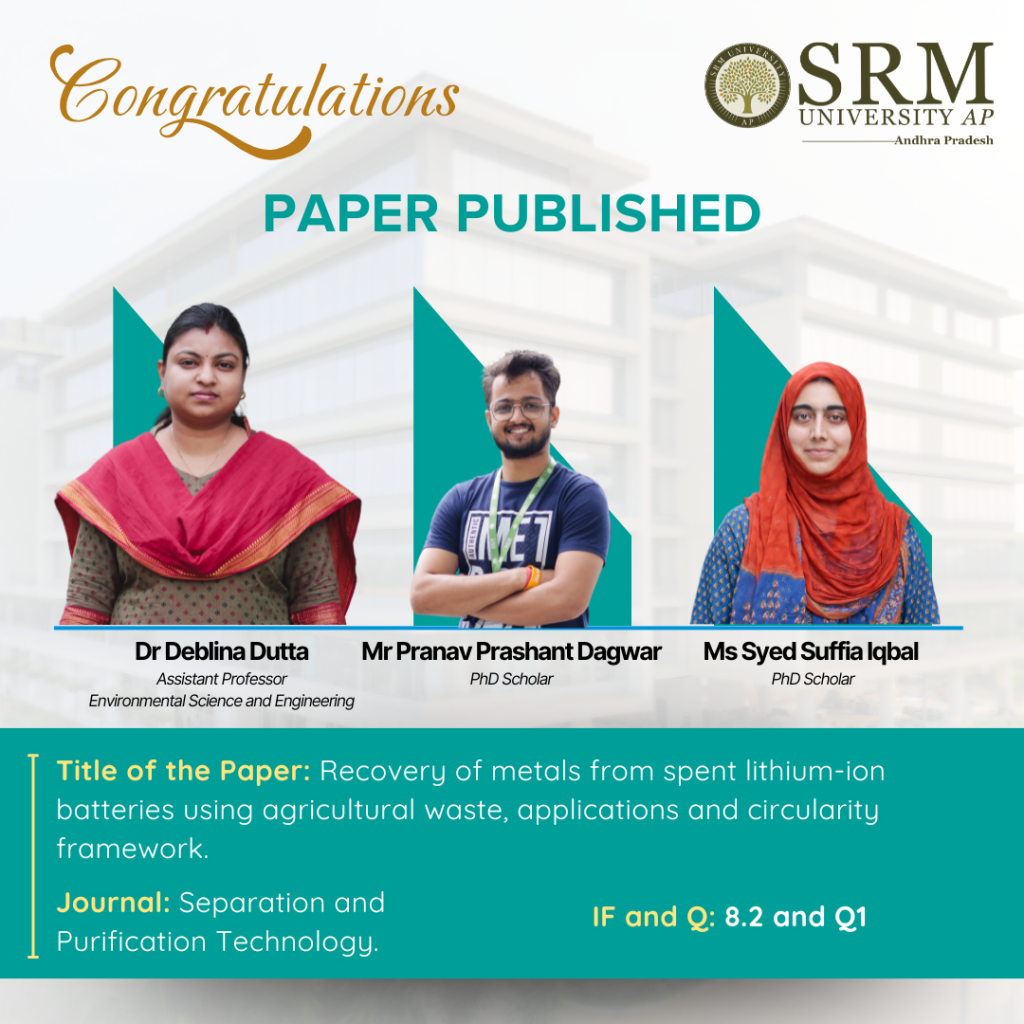
What happens when you can use natural waste like orange peels and rice husks to extract valuable metals from old batteries, electric vehicles, etc.? Exploring innovative and eco-friendly methods to recover useful metals, Dr Deblina Dutta, Assistant Professor, Department of Environmental Science and Engineering, and her research scholars, Ms Syed Suffia Iqbal and Mr Pranav Prashant Dagwar, have published a paper titled “Recovery of metals from spent lithium-ion batteries using agricultural waste, applications and circularity framework” in the prestigious Q1 journal Separation and Purification Technology having an impact factor of 8.2.
Abstract
This research explores an innovative, sustainable method to recover valuable metals (Li, Co, Ni, Mn) from spent lithium-ion batteries (LIBs) using agricultural waste such as rice husk, orange peels, tea waste, and sugarcane molasses. These organic wastes serve as eco-friendly, cost-effective leaching agents. The study compares conventional and biomass-based recovery methods, evaluates environmental impacts, and aligns the approach with circular economy principles to promote green technology and resource optimization.
Practical Implementation/ Social Implications of the Research
- Eco-friendly Recycling: Offers an alternative to hazardous chemical recycling by using biodegradable, non-toxic agricultural waste.
- Waste Valorisation: Transforms agricultural waste into a valuable resource, reducing landfill and open burning.
- Resource Recovery: Helps recover critical battery metals, reducing dependence on mining.
- Circular Economy: Supports sustainability goals by promoting a closed-loop recycling system.
- Policy Relevance: Aligns with SDGs such as clean energy (SDG 7), sustainable industries (SDG 9), and responsible consumption (SDG 12).
Collaborations
- Ain Shams University, Egypt
- Central Metallurgical R&D Institute (CMRDI), Egypt
Future Research Plans
- Scale up biomass-based metal recovery to pilot or industrial level.
- Develop hybrid leaching methods combining microbes and green solvents.
- Expand to rare earth element (REE) recovery from other waste streams.
Link to the article
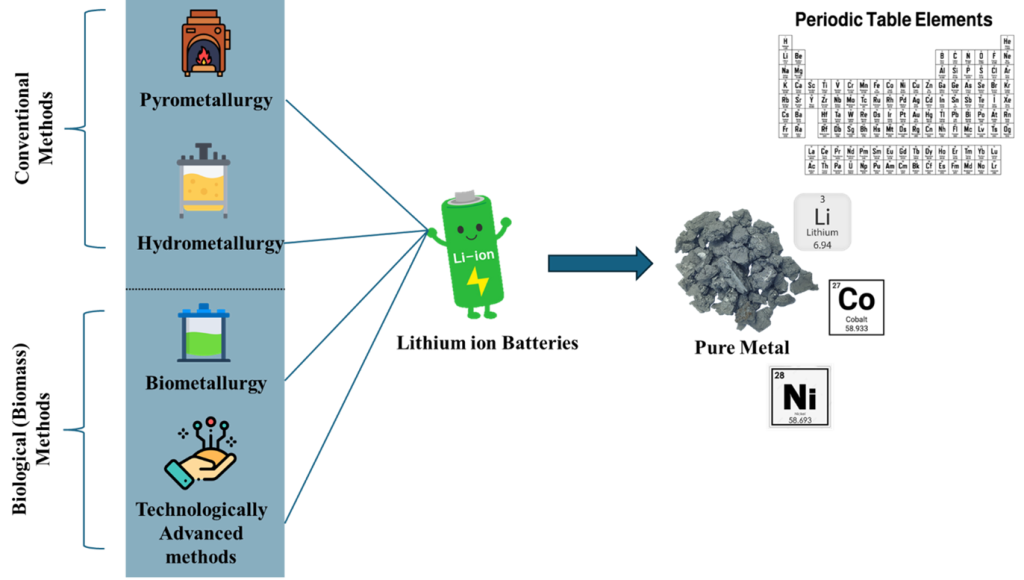
Fig. 2. Conventional and technologically advanced process for recycling LIBs.
Continue reading →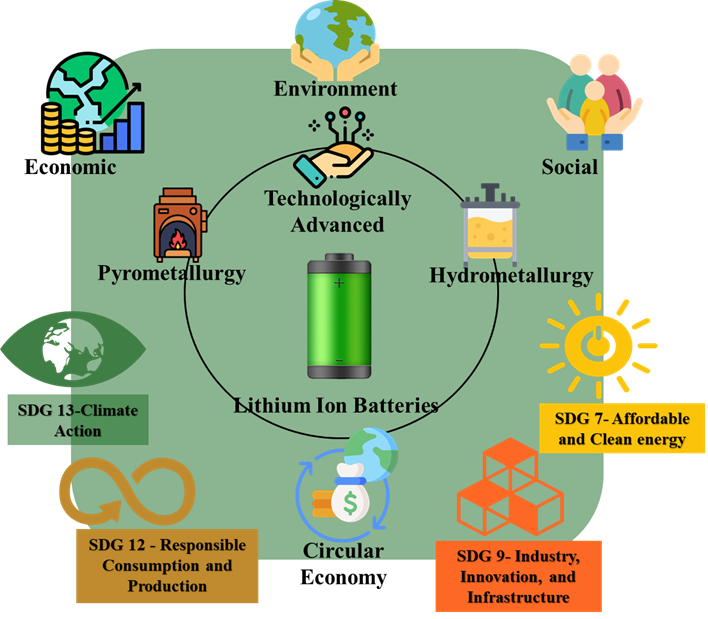
Fig. 9. Sustainability and circular economic applications in LIBs management.
- Digestate Valorisation through Green Chemistry Technology June 23, 2025
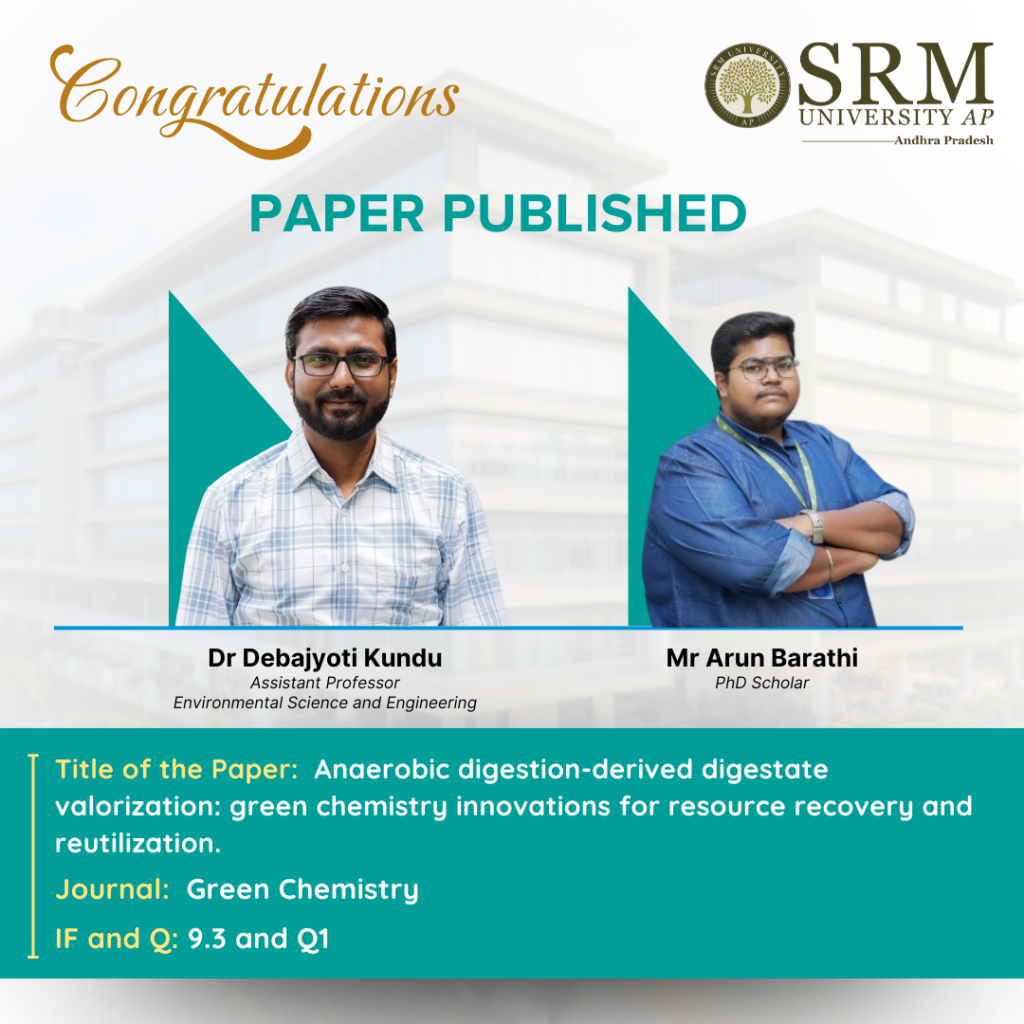
The proactive approach of Green Chemistry is driven by the cardinal rule of prevention rather than remediation of pollution. Analysing various eco-friendly ways to reduce waste, improve recycling, and help industries and farmers benefit from organic waste, Dr Debajyoti Kundu, Assistant Professor from the Department of Environmental Science and Engineering and his scholar Mr Arun Bharati, has published a paper titled “Anaerobic digestion-derived digestate valorization: Green chemistry innovations for resource recovery and reutilization”, in the Q1 journal Green Chemistry having an impact factor of 9.3.
Their research looked into eco-friendly ways to turn the bi-product of anaerobic digestion – digestate into valuable products like organic fertilisers, chemicals, and even ingredients for making plastics. The team also explores how to recover nutrients like nitrogen and phosphorus from it.
Abstract
Anaerobic digestion (AD) is a sustainable technology that converts organic waste into biogas, producing digestate as a by-product. This review investigates innovative strategies for digestate valorization through green chemistry approaches, emphasising its transformation into valuable resources such as biochar, bio-based polymers, and high-value chemicals like volatile fatty acids and humic substances. Additionally, the study explores nutrient recovery techniques like ammonia stripping and struvite precipitation. Through techno-economic and life cycle assessment perspectives, the work promotes digestate reutilization within a circular bioeconomy to enhance environmental sustainability and support net-zero goals.
Practical Implementation/ Social Implications of the Research
The research offers practical solutions for managing the large volumes of digestate generated in biogas plants. By converting digestate into biofertilisers, biochar, and industrial chemicals, we reduce the environmental burden of waste disposal and create economic opportunities for rural and urban stakeholders. These innovations support sustainable agriculture, reduce reliance on synthetic fertilisers, and promote clean technology, aligning with national and global sustainability goals, including SDGs and the circular economy.
Collaborations
The study was collaborative between SRM University–AP, SRMIST, Vignan’s Foundation, University of North Bengal, University of Burdwan, CSIR–NEERI, Thapar Institute, and Virginia Tech (USA).
Future Research Plans
The research lab focuses on the eco-friendly valorization of diverse organic wastes using green chemistry and sustainable bioprocessing approaches. We aim to develop scalable technologies for producing high-value biochemicals, enzymes, and biomaterials. These efforts are aligned with key UN SDGs.
Link to the article
Continue reading →